From the captivating Retailer Hub, to the latest products and trends driving the market, this year’s National Convenience Show had it all
Birmingham’s NEC was once again the venue for the annual National Convenience Show last month, with the Retailer Hub the focal point for great ideas, analysis and discussion.
A winning combination of retailers, suppliers and expert analysts joined the panels to share their insights on the hottest topics of the moment, usually under the guiding hand of C-Store editor David Rees. Read on for the highlights of the Retailer Hub sessions.
Meaning of mega mergers

Booker managing director for Retail Steve Fox assured retailers in the audience that they would benefit from the “£2.5bn opportunity” of the wholesaler’s merger with Tesco. “We can move faster and be more nimble by merging with Tesco,” he said. “There should be a price opportunity for retailers.”
Booker-affiliated retailers would also gain access to Tesco products and click & collect, Fox added. “Booker and Tesco will run separately, but if there are synergies, we’ll take them.”
He also pledged to retailers that Easter would be much cheaper next year. “As a group we’ll buy Easter and Christmas together. You’ll definitely see a better Easter offer next year, and hopefully for Christmas, too.”
Sheffield Premier retailer Mandeep Singh said he had already seen short-term benefits of the merger, with some “great promotions” such as multipacks on beers.
In the longer term, Mandeep said he wanted to tap into Tesco products, banking and the Tesco Clubcard. “We have shoppers who are loyal to Tesco, so we want to tap into that traffic,” he said.
The spotlight then shifted to the Co-op’s takeover of Nisa. Coventry Nisa retailer Paul Cheema added his perspective: “You have to change your mindset from being an independent to working with a giant,” he said. “Could the Co-op drive value in my stores? Possibly, but for me it’s still about my dad’s name above the shop.”
Putting footfall first
This session started on an upbeat tone, with Londis retailer Arjan Mehr hailing a growth in footfall at his Bracknell store in Berkshire. “Little and often is what it’s all about, and c-stores have never been in a better position to take advantage of this trend,” he said. But he warned against a race to the bottom. “We can’t be a pound shop. People expect much higher standards - create more space and find a USP. For example, you’ll be amazed how many people buy Eastern European food.”
Londis brand director Martin Swadling said he was focusing on helping retailers free up space to make money from the new footfall drivers, such as bakery, food to go and dairy. In one store, Londis had removed 300 lines of grocery and increased chilled, healthy eating and food to go, Swadling added. “And old cash cows such as news and mags are in terminal decline.”
HIM’s Josh Clifton also highlighted the importance of staff friendliness and helpfulness. Regarding future footfall drivers, he said local would be a “huge driver across all ages”, while Swadling pointed to food to go and hot drinks, especially bean-to-cup coffee solutions.
At your foodservice: a route to market
The trend towards healthier eating is impacting on customers’ food choices, but there is still a huge opportunity for traditional food-to-go products, claimed the panel.
“Health is a big thing Monday to Friday, but people are as interested in indulgence,” said Caoire Blakemore, commercial director at Blakemore & Son. “Where some of our retailers have done really well is where they are over-indexing on donuts and brownies.”
John Want, marketing director at Adelie Foods, added: “Meat-free is a very important area, but the majority of people buying into meat-free still eat meat. They’re buying a KFC on a Friday night, but they’ll have a meat-free Monday.” Want added that there was strong growth in traditional hot breakfast goods such as bacon and egg rolls.
Meanwhile, Booker retail development controller Jason Parry told retailers there was “nothing more important” than coffee and sandwiches.
Connolly Spar business development manager Susan Connolly agreed. “Retailers can look to Ireland for inspiration, but we’re several years away from that,” she said. “Just look at a basic coffee offer, your staple sandwiches and sausage rolls to start off, and expand on that.”
In-store events
In-store events have always been an excellent way to boost basket spend, but research suggests they are becoming more important. “The opportunity is massive,” said Mike Baker, brand director at Budgens. “It’s what brings theatre and will bring convenience stores to life.”
Dean Holborn, owner of Holborn’s in Nutfield, Surrey, agreed. He managed to turn a change in the weather into a popular in-store event simply by creating a display of sledges. “When it snowed I sold £1,000-worth in two days,” he said, “Everyone wanted to go sledging, but they didn’t want to have to go far to buy one.”
Holly Franklin, client development manager for HIM, pointed out that even the year-round Big Night In occasion is growing in popularity. “C-stores can stand out by creating more from the everyday events; 75% of Millennials would rather stay in than go out so the Big Night In occasion is a big opportunity.”
Talking rubbish
Independent retailers are tackling single-use plastics head-on by reducing the use of carrier bags in-store, but there are further plastic reduction challenges ahead.
Gavin Sheppard, founder of re-usable shopping bags company EcoBags, said: “When we started 15 years ago people looked at me like I was an alien because everyone used plastic carrier bags.” He added: “A lot of people we’ve seen at the stand want to go plastic-free. There are now a lot of independents who are making that voluntary move.”
Association of Convenience Stores (ACS) head of public affairs Edward Woodall, who attended the session, concurred. “In terms of retailers, there’s a really positive story to tell with plastic carrier bags,” he claimed. “Currently, 42% of independent retailers are charging for plastic carrier bags and generally as an industry we support the government regulating in that space.”
However, he warned that the government’s deposit return scheme for single-use drinks containers “poses a real challenge for retailers”.
Explorers at the Retailer Hub
A group of leading retailers shared their insights on technology, following a trip to the EuroCIS trade fair in Düsseldorf, Germany, organised by the ACS.
Cameras are no longer simply used for security, they can also be used to develop facial recognition systems to learn more about customers, explained West Midlands retailer Rav Garcha. “A customer can walk past a screen with a camera on it, and it will tell you the age of that buying unit [customer] and how many buying units there are in a family, and you can then use that data.”
Another useful technology is heat mapping, claimed Amit Puntambekar, who owns Ash Stores in Fenstanton, Cambridgeshire. “Your epos system can only tell you what’s been sold, it can’t tell you where customers have been in-store and what they’re looking at. I’m in talks to install heat-mapping technology and footfall-monitoring equipment so that we can see where our customers are going, whether they are buying products from a particular section. If they’re not buying anything, but they’re staying there a long time, then we ask what are we doing wrong?”
The secret to upselling

With four in 10 shoppers now actively looking for premium products when shopping, convenience store retailers have a sterling opportunity to profit. That was the message at the heart of this inspiring panel session fronted by HIM’s Heidi Lanschuetzer, Harj Dhasee, owner of Mickleton Village Stores, Gloucestershire, and Avtar (Sid) Sidhu of Budgens Kenilworth.
The main categories that shoppers are willing to trade up in are chilled foods, bakery and confectionery, with artisanal breads and gluten-free goods proving a sizeable opportunity within bakery, and organic, locally-produced goods within chilled.
Retailers should also seek to “inform, interrupt and inspire” shoppers as they made their way around the store, so as to trigger additional impulse sales, Lanschuetzer added.
Offering Amazon-inspired promotional “bundles” could also help boost sales, particularly within the Meal for Tonight mission, she added.
Educating staff so that they could talk knowledgeably and enthusiastically to shoppers about more premium products was also critical to successful upselling, Harj added.
“For us, upselling isn’t about promotions, it’s about inspiring shoppers to buy into a premium or exclusive product that they can’t get anywhere else. We are showing them that if they shop with us, they can get something extra special,” he said.
However, there was a “fine line between upselling and being annoying,” Sid added. “Be careful when upselling at the till, you need to do it softly here. Sometimes it’s better to just have promotional signs and products at the till for shoppers to see for themselves,” he added.
Taking food to go further
Customers’ expectations of food to go are higher than ever before, Kash Khera, managing director of Simply Fresh, told retailers at this session. “Offering a coffee and sandwich meal deal is considered really basic now; we don’t even think of this as food to go anymore.” The food-to-go bar has been raised by innovative convenience retailers and high-street operators such as Prêt à Manger and Wasabi, and shoppers now have towering expectations.
“Food to go needs to be compelling; there needs to be theatre and substance to the offer. Health is also high on the agenda and shoppers also want variety,” Khera added.
“In one of our stores we have launched a pop-up vendor scheme and each Thursday a different ‘local hero’ comes in and sells food to go.”
However, offering consistency was critical, Khera warned. “You have to know your level and stick to it. If you’re a 10 one day and a six another, shoppers are going to lose trust. That’s one of the reasons McDonald’s is so successful - it’s consistent,” he added.
Turning top-up to trade-up
Premiumisation is an important shopper trend, according to HIM’s Alice Dolling, “especially when there is so much uncertainty for retailers who need to drive up value”.
Paul Cheema, of Malcolm’s Stores in Coventry, has focused on making his alcohol selection as premium as possible, stocking more specialist lines and craft gins.
He said: “Just before Christmas, we worked with CYT to bring a tablet into the store to give shoppers a selection of food pairings to accompany our range of wines. It’s great for us, because obviously we want to encourage customers to buy those extra products in the store as well.
“We would rather have fewer baskets with a £50 average spend, which is why we are working to make the rest of the store more premium.”
Paul Hargreaves, chief executive of Cotswold Fayre, pointed out that premium products could add more than just value to a convenience store.
“There are opportunities for retailers, particularly at Christmas and Easter, to offer more seasonal products that can’t be compared with the premium lines in the multiples,” he said. “This helps shoppers to see beyond the idea that c-stores are more expensive. Quite a few people still think that small stores are going to rip them off, which just isn’t true.”
NCS product news

Best New Idea at NCS 2018 went to Snowshock for its Frappino Ice Cold Coffee dispense machine. The ice coffee, made using Fairtrade arabica beans, is supplied ready to serve in a bag-in-box format and dispensed in a similar way to slush. Other show highlights include:
- Bitcoin ATM operator BCB ATM made its show debut, offering to pay retailers rental of £100-£200 a month, plus commission of 30-50p per transaction, in exchange for housing a machine in their store. CEO Landry Ntahe claims that the ATMs, which enable users to buy and sell crypto currency instantly, rather than having to wait months for a verified online exchange, can have a big impact on store footfall.
- Confectionery supplier Kervan Gida launched a ‘three for £1’ bagged range under its Dexter’s brand. Packs are pricemarked at 39p and all products supplied by the Turkish firm are halal-accredited.
- Adelie Foods, the company behind Urban Eat, announced the launch of its first branded food-to-go offering in partnership with Addo Food Group, to provide retailers with a direct-to-store delivery service. Branded food-to-go SKUs include pastries and pies from Wall’s and Pork Farms.
- Security firm Cougar Monitoring introduced a new Pro-Active Response System to tackle retail crime. The system is designed to provide store owners with immediate support, as any incident is immediately observed by a CCTV operator once retailers have pressed their personal attack button.
- Boka snack bar, the first in Europe featuring four green lights front of pack, unveiled its new single bars. The 30g grab-and-go bars come with an rrp of 75p.
- CBD products for vaping featured prominently on a number of this year’s vape brand stands. CBD, which is short for Cannabidiol, is a cannabis compound that is said to have a number of benefits including relief from inflammation, pain and anxiety. Exhibitor UK Vape Supply was talking to retailers about its Live Well full-spectrum CBD products, which come in 5% and 10% strengths, while HempLucid was showcasing its range which includes a vaping product as well as CBD gummies.
- Sports nutrition brand PHD showcased its new Smart Jack protein flapjacks. The bars offer 15g of protein, 229 calories and a lower price point than the average protein bar (rrp £1.59).




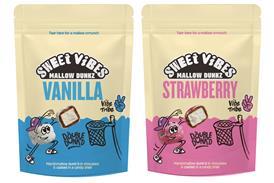

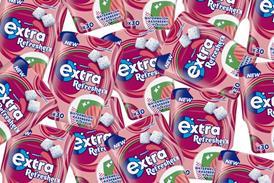
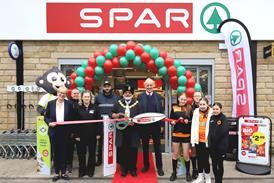
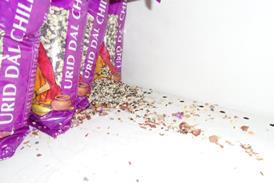







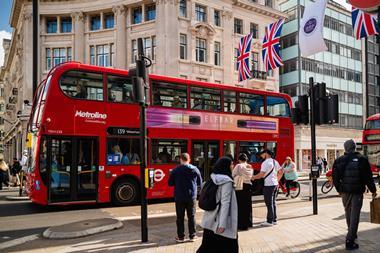
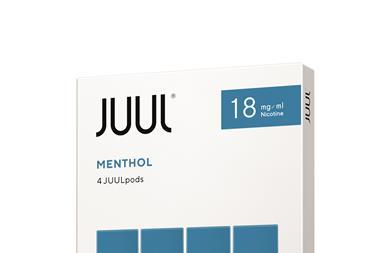
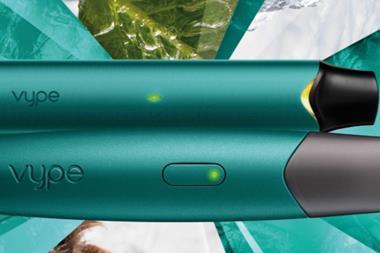
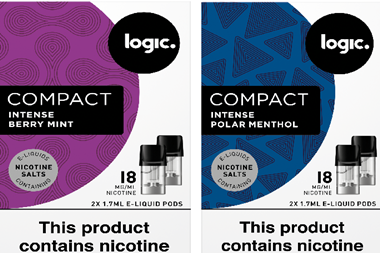
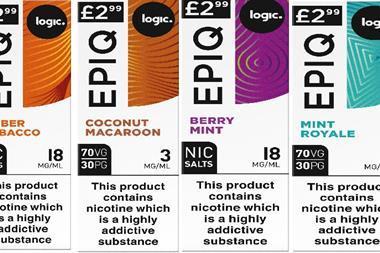
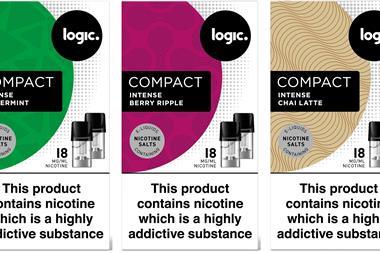
No comments yet